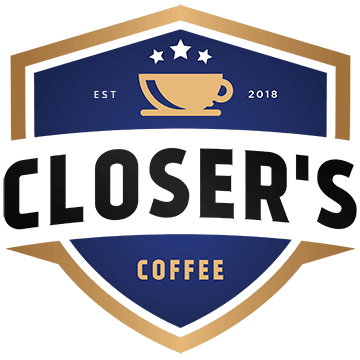Regardless of how mature your company is, when you’re building a sales organization you will constantly be asking yourself this question over and over again:
Who should I hire?
This is a hard question to answer because there are an endless amount of factors, attributes and skills that define a successful sales rep. Furthermore, the complexity of this decision increases because what makes a sales rep a top performer at one company, won’t necessarily mean they’ll succeed within your organization.
So where do you start? How do you reduce the risks associated with hiring a new sales rep while increasing the chances of them being a superstar?
To help you get started, I’ve broken down the sales hiring process into three simple steps to help you predictably scale your sales organization.
Step 1 – Define Your Sales Culture Goals
When most of my clients begin looking for a sales rep, they often start by focusing on the hard sales skill set they feel the sales rep will need to have in order to be successful – like prior experience prospecting, managing accounts, closing, negotiating, etc.
Yes – these hard sales skills are valuable, but not nearly as important as the impact this sales rep will have on your sales culture. With strong sales processes and sales coaching, a new sales rep can learn hard skills quickly. Soft skills like empathy, coach-ability or humility are far more difficult to teach and a bad culture fit can breed toxicity within your sales team.
Defining your sales culture goals will force you to prioritize the soft sales skills during the hiring process that will contribute to building your sales culture. This is important, because your sales culture will be the primary factor accelerating and determining the future success of your new sales rep hire.
Start by defining what goals you want your sales culture to achieve. Try to keep them limited to 5-7 goals, ensuring that you prioritize the most important ones. My sales culture goals are usually a mix of the following:
- Constant improvement through coaching.
- Supportive Mental Health environment.
- Agile and flexible to constant changes
- Low rep turn-over.
- Transparent and trusting across all levels.
- Data and results driven
- Creative problem solvers.
Depending on your values as a sales leader and the type of sales organization you’re trying to build, your sales culture goals may or may not be different.
Step 2 – Define the Core Values & Soft Skills That Achieve Your Goals
Next step is to define the core values and soft skills you and your sales reps need to embrace in order to reach your sales culture goals. Your sales culture will not be built overnight – it takes time, patience and commitment, which means you need to hire sales reps that passionately live by these core values daily.
Take your time with this step, because these core values and soft skills will be what you need to screen for during the hiring process.
Complete this step by identifying the core values and soft skills that will help you achieve each of the sales culture goals you’ve outlined in step one. Here are some examples:
Goal # 1 – Constant improvement through coaching:
- Coach-ability, Self-Awareness, Humility, Curiosity
Goal #2 – Supportive Mental Health environment:
- Self-Awareness, Empathetic, Honest, Humility
Goal # 3 – Data and Results Driven:
- Analytical, Grit, Organized, Self-Awareness.
Completing this exercise for each one of your sales culture goals will help you prioritize which core values and soft skills are the most important, based on which ones overlap the most.
If you feel like a core value or soft skill should be showing up more, it usually means you should revisit your sales culture goals or you need to prioritize and weigh the soft skills associated to the more important sales goal more heavily during the hiring process.
In the example above, Self-Awareness helps me achieve all 3 goals, which also happens to be really important when selling – the ability to perceive how your interactions and behavior are impacting the buyer’s decision.
Step 3 – Develop a Hiring Scorecard Around Your Core Values
You’ve defined your sales culture goals – Check.
You’ve defined the soft skills and core values that will help you attain those goals – Check.
Now it’s time to create a hiring scorecard based off those core values and soft skills to help you measure and determine if a sales rep candidate will be a fit for your sales team.
To create a hiring scorecard – determine how you’re going to test each of the core values and soft skills you have listed in step two. Testing can involve things like:
- How well the sales rep candidate responds to a core value related question.
- How well the sales rep candidate performs during role-playing sessions.
- How well the sales rep executes and delivers a potential assignment or task.
Remember, it is important to weigh the soft skills and core values differently depending on how important they are in achieving your sales culture goals.
A quick Google search will provide you with tons of resources on how to test each soft skill, but below is an example of how I’ve tested for Curiosity before in the past. Each section below helps me determine the curiosity level of the sales rep candidates.
- How curious is the sales rep candidate in getting to know me at the start of the interview? (Points 1-10)
- Do they ask me about my day, LinkedIn and/or personal life? (Points 0-2)
- How engaging are the questions they ask? (Points 1-10)
Questions About the Company:
- How insightful are the questions the rep asks about the company? (Points 1-10)
- How insightful are the questions the rep asks about the sales rep role specifically? (Points 1-10)
- How well do they respond to the question – Tell me what you know about the company? (Points 1-10)
Discovery Call Role Play:
- How well did they ask questions during the discovery call roleplay? (1-10)
- Did they try to build rapport? (0-2)
- Did they ask open or closed questions? (0-2)
- Did they successfully qualify me as a good opportunity? (1-5)
Other Questions:
- How do they respond to – What is the most adventurous thing you’ve done? Why did you do it? (Points 1-10)
- When was the last time you had to learn something new? How did you go about it? (Points 1-10)
- What is the last non-fiction book you read? Why did you read it? (Points 1-10)
As you can see from the example above – this gives me a structured process to compare and help me determine how curious every sales rep candidate is. This may not be perfect right from the start, but at least it gives me a starting point to measure each candidate equally and something I can improve on going forward.
By using various methods of testing, I also get insight into their hard skill sales ability, but more importantly, find out if this person will contribute to building my sales culture goals.
One Caveat
Focusing on your sales culture goals, soft skills and core value, while using the steps above will help you build a high performing team in a predictable way. The one caveat to this is if you’re hiring your first sales rep or have a fairly underdeveloped sales process.
If this is the situation for your organization, you should be placing greater importance on hard skills and experience depending on the business challenges you’re trying to solve at that time. Your first sales hire should be someone who can capture your message, create processes and lay the foundation to onboard and ramp up future sales rep hires.




